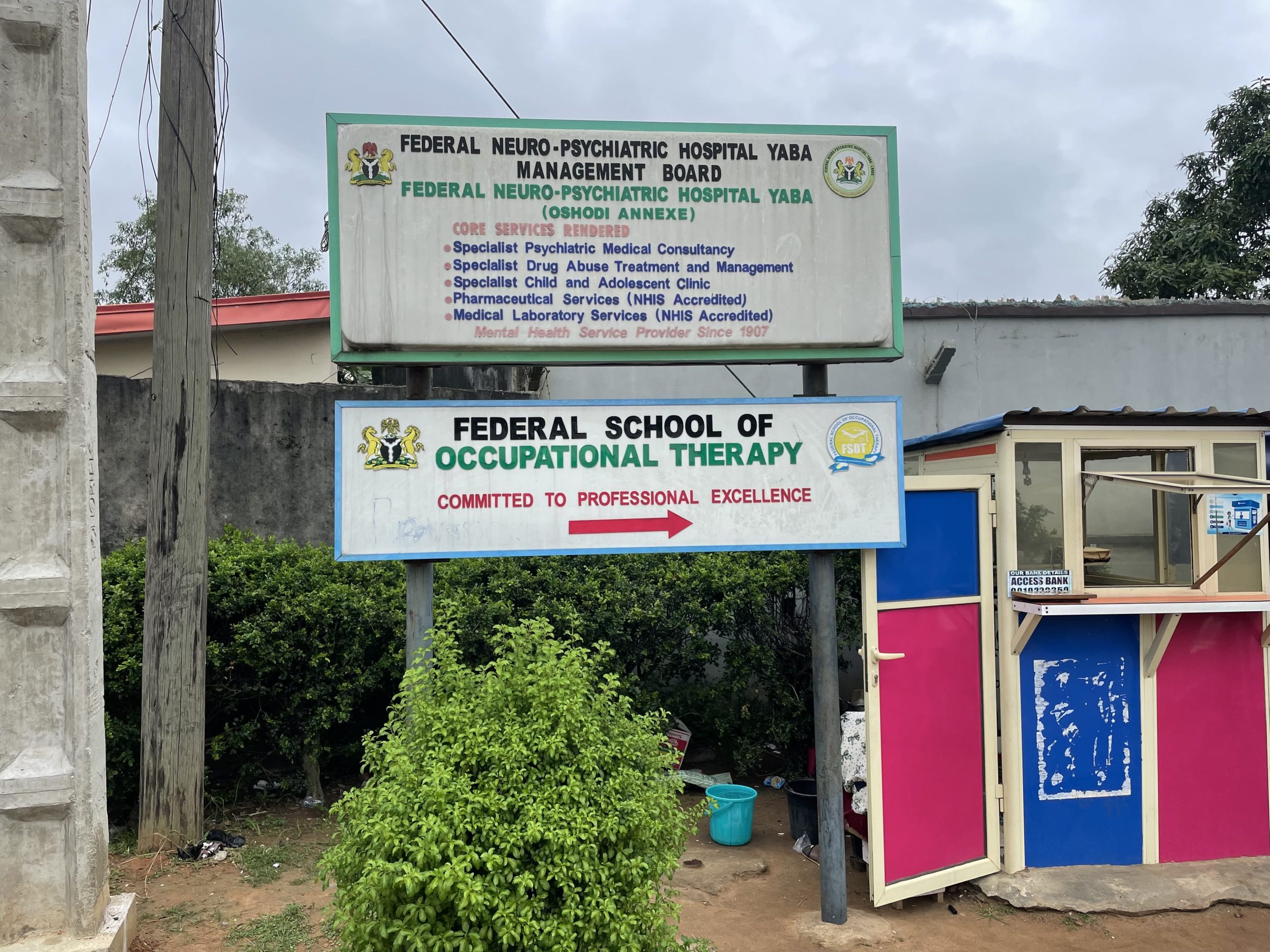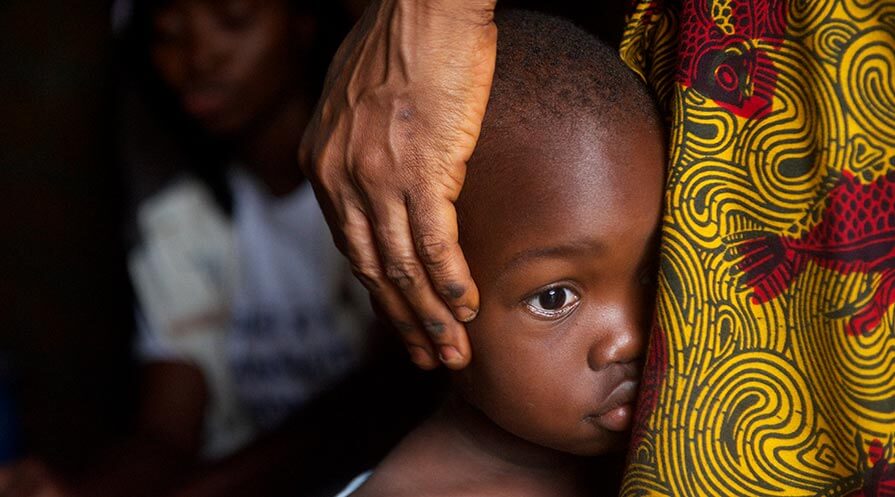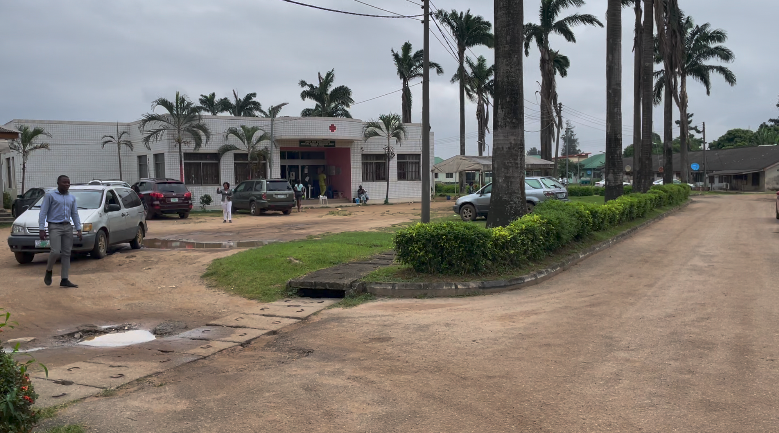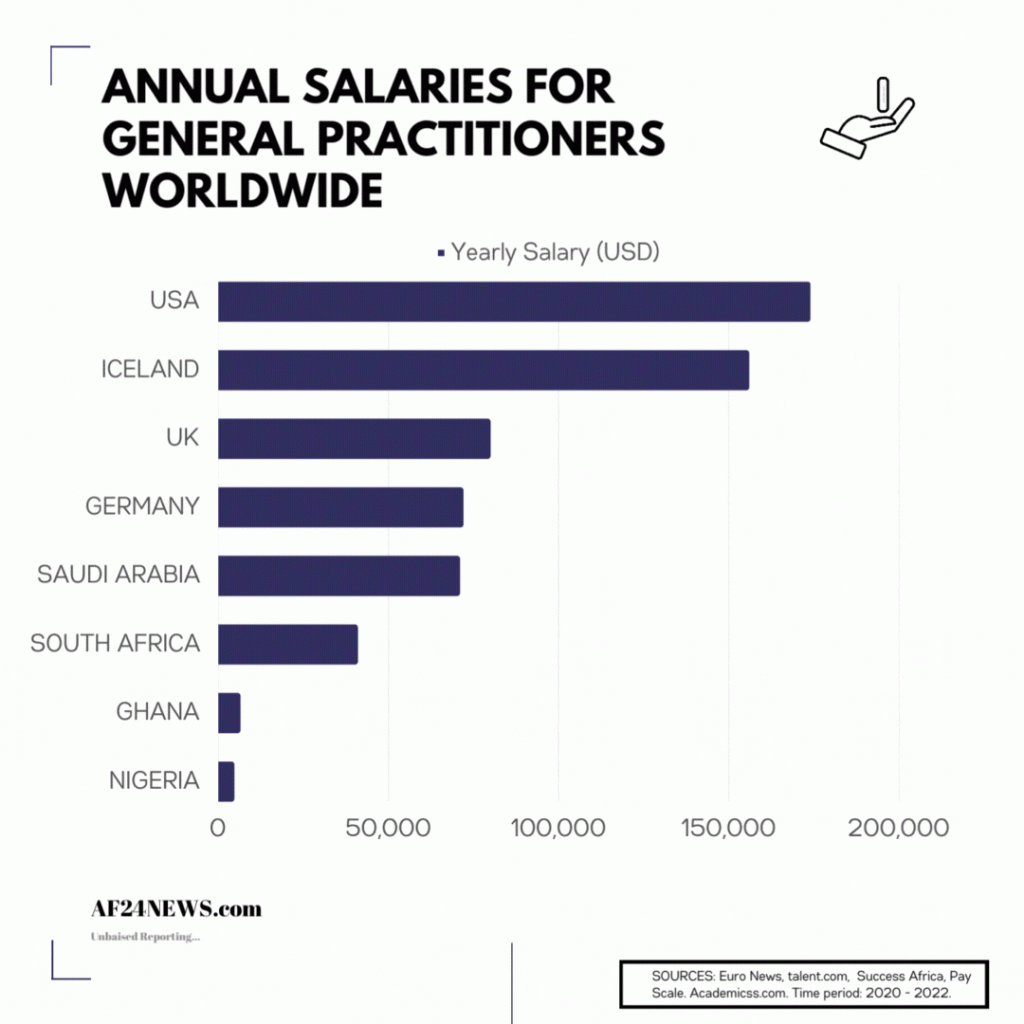By Wisdom Deji-Folutile
In 2022, a 9-year-old girl growing up in Lagos, Nigeria was admitted into a children’s ward at a Neuropsychiatric hospital in the heart of the metropolitan city. A victim of sexual molestation, she had been checked into a psych ward once her family observed that she was exhibiting schizophrenic symptoms months after the incident.
Schizophrenia, a chronic, severe mental disorder that affects the way a person thinks, acts and perceives reality, can be a chronic and disabling illness to experience as an adult, much less as a child. Sadly, a study by five nurses at a Federal Neuropsychiatric Hospital in Nigeria has revealed that it is the most prevalent mental illness among Nigerian adolescents.
But the assortment of mental health cases amongst Nigerian children is far-ranging, from more chronic conditions like schizophrenia and bipolar affective disorder to relatively milder illnesses like eating disorders.
The Child And Adolescent Mental Health Services wing of the Federal Neuropsychiatric Hospitals in Nigeria often admits and medicates prepubescent and adolescent children suffering from diverse mental illnesses. And their causes are as diverse as the diagnoses themselves.
For instance, another such case was that of a child who, having witnessed an armed robbery that led to the death of her grandmother, suffered a resulting trauma that eventually landed her in the care facility. She was just three years old when she witnessed the murderous ordeal firsthand.
When our correspondents paid a visit to The Child And Adolescent Mental Health Services Unit of the Federal Neuropsychiatric Hospital in Yaba, Lagos, a nurse who spoke under the condition of anonymity also shared the story of an unnamed teenage girl who had just gained admission into the university.

“Just a few months after she gained admission into a university in Lagos, she started exhibiting abnormal behaviour. Her family brought her in after closely monitoring the situation for a while. We observed schizophrenic symptoms. She was just 15 years old at the time. We are not yet sure what triggered her case,” she had divulged.
Nigeria, a house full of children
Such mental health issues, especially among children, threaten to ravage Africa’s most populous country. In October 2021, UNICEF reported that 1 in 6 young Nigerians between the ages of 15-24 experience some form of mental illness.
In many ways, this is not surprising. Nigeria is home to one of the world’s most youthful demographic distributions, with just over half of its population under the age of 19. Over 103 million Nigerians are under the age of 18. Essentially, Nigeria can in simpler terms be described as a house full of children.
Although psychiatric challenges can be caused by a host of factors, childhood trauma, abuse, and neglect are often factors that lead to the development of disorders. And in a country fraught with poverty, insecurity, school kidnappings, and an epidemic of domestic violence, mental wellness is understandably a scarce resource.
Meanwhile, according to UNICEF Nigeria, six out of every 10 children in the country experience some form of violence, with one in four girls and 10 percent of boys reportedly victimised by sexual violence. UNICEF goes on to state that only a fraction of these children ever receive the medical attention or care they deserve. And the reasons for that are fairly obvious.

Because despite the fact that these illnesses—and the under-18 demographic—bear prevalence, Nigeria has characteristically responded with lethargic urgency.
“Not enough hands”
While illiteracy, stigma, and superstition are more apparent culprits, the reality is that there are simply not enough medical resources—human and otherwise—to cope with the load.
In August 2022, Dare Ishaya, president of the Nigerian Association of Resident Doctors (NARD), told local news source The PUNCH in an interview that six out of 10 doctors plan to leave the country.
In a study published in October, medical scholars in Nigeria expounded on the prevalence of a pattern of migration intention in Nigerian doctors. Using quantitative data collected from 182 doctors undergoing training at the two tertiary hospitals in Ekiti State, it was discovered that 74 percent of the practitioners intended to emigrate.
For a country with a grossly understaffed medical department, this presents a looming crisis.
For one, the Neuropsychiatric Hospitals located in the country are barely enough to handle the patient load of psychiatric cases in the country, with each geopolitical zone barely housing one of such facilities. For instance, the Lagos Child And Adolescent Mental Health Services Unit of the Federal Neuropsychiatric Hospital in Yaba, Lagos, has recorded over 300,000 cases since its inception.
In an interview with The PUNCH in August 2022, the President of the Nigerian Medical Association of Nigeria, Dr Uche Ojinmah, said that there are between 20,000 to 25,000 doctors in Nigeria. For a country with over 200 million citizens, this number is atrocious. The mathematics on this figure puts our doctor-patient ratio at a dire 1:8000.
Although the World Health Organisation (WHO) has dispelled reports that it recommends an official doctor-patient ratio, Ojinmah claimed that the global health body’s recommendation stands at 1:600.
To understand the entrenching severity of the threat of understaffing, especially for children and adolescents in dire need of psychiatric attention, our correspondents paid a visit to the Child And Adolescent Mental Health Services Unit of the Federal Neuropsychiatric Hospital in Yaba, Lagos.

A psychiatric doctor who pleaded anonymity because she was not the official spokesperson of the facility, said she has been with the centre for over eight years. She equally established to our correspondent that understaffing and the migration of doctors are known facts.
When asked if she felt that there were enough hands on deck, she scoffed, responding that there has never been enough hands.
“There has never been enough hands. It’s just that the disparity may be less obvious in some areas compared to other areas. So definitely, with the mass exodus of health care workers, the deficit will be more pronounced,” she said.
Looming mental crisis
According to her, the consequences are even direr in rural communities.
“There are some hospitals in some rural areas already that do not have doctors in some particular specialties. They are all gone. That will be a very big problem,” she explained to our correspondent.
Meanwhile, the children themselves, struggling to function while teetering on the boundaries of insanity, are oblivious to the situation. The age range for the patients attended to at The Child and Adolescent Center of the hospital is 0-18 years.
“We’ve had babies as young as three months old,” the doctor said.
Our correspondent also discovered that admission rooms for kid mental patients in the hospital were empty mainly due to inadequate medical personnel.
A nurse at the centre who also pleaded anonymity, said the kid patients come from home because of inadequate personnel and the dilapidated state of the wards.
Growing substance abuse
Citing inadequate ante-natal care as a leading reason for children developing early disorders, the psychiatric doctor, also explained that for older children, substance abuse—especially in urban areas—is a growing problem.
“I’ve been working here for about 8 years. Substance abuse is a problem in every community from every environment but it seems to be a bigger problem in urban centres—big cities. You see children who abuse substances of various kinds. Even substances that those who live in the hinterlands and rural areas may not have access to.
“As little as children of 8, 9, 10 years abusing cannabis, cigarettes, alcohol and so on. And then even moving into the more expensive, elitist substances like heroin, cocaine, and so on,” she said.
Unfortunately, her observations are spot on. Data from UNICEF indicates that the percentage of Nigerian adolescents using alcohol exceeds the world’s median average. According to the statistics, an alarming 51.7 percent of male adolescents in Nigeria abuse alcohol, surpassing the global median of 36 percent. About 22 percent of female adolescents in the populous black nation use the highly addictive substance.
The heavily-documented correlation between substance abuse and the development of mental disorders makes the looming threat as obvious as a brightly-painted rainbow in a monochrome background.
However, nobody knows when this bubble will burst.
Nigeria is notoriously known for cultivating poor data repositories, and reports of mental health cases are more often logged by onlookers on social media than through official channels.
Yet, medical practitioners like this psychiatric doctor believe that recovery is possible. However, attaining any sort of progress requires patience—a virtue in short supply among Nigerian medical professionals.
Nigerian doctors seeking greener pastures
The simple reality is that Nigerian doctors have, in their masses, expressed a general loss of interest in practicing their discipline within the borders of their home country.
The psychiatric doctor explained the attraction to foreign soil quite clearly.
“The issue of migration for doctors or otherwise is a thing of free will. It is a personal choice and people move all the time. That is a fact. However in the medical field, it’s true that people move to countries where they feel like their services would be better appreciated, better remuneration, better standard of work, and for other personal reasons,” she said.
“In the past couple of years, there has been a large exodus of medical professionals—nurses, physiotherapists, pharmacists.”
“A lot of people move because they feel generally, the working condition is not favourable and they do not have the right tools. Cost of living seems to be increasing while the standard of living has remained stagnant.”
Emigration is particularly threatening for the specialist sectors of medical services.
For instance, during preliminary visits, another doctor at the Child and Adolescent Center in the Neuropsychiatric facility in Yaba had under the condition of anonymity explained that she too would be leaving soon. As our correspondents listened to our source share ample examples of other specialist doctors working that same unit who had made the move to yonder shores, the image of the sparsely supervised ward began to grotesquely resemble the picture of a war-front amputee slowly bleeding to death.
Before the publishing of this article, our unnamed source had followed through on her intention to relocate as well.
Poor economy, a major push factor
NARD president Ishaya essentially confirmed that Nigeria’s poor economic situation was an apparent reason for the brain drain. Citing the economy as the major push factor, Ishaya said remuneration is a big dealbreaker for Nigerian doctors.

“Of course, you will agree with me that we are having inflation in the country and the rate at which our Naira is being devalued is alarming. If you compare our pay with the pay where most of these health workers go, you will discover that what we earn here is not up to one-tenth of what they get practising there,” he said.
The NARD President then conceded that as long as these factors persist, medical professionals will continue to swap Nigeria for foreign soil “to seek greener pastures”.
Nigerian doctors have been known to migrate to the middle-eastern regions, Europe, and the Asia-Pacific regions to find better opportunities due to the abysmal level of attention given to the medical sector in the West African country.
In October 2022, the President of the Nigerian Medical Association, Uche Rowland, announced in a symposium that about 5,600 Nigerian doctors had migrated from the country in the last eight years. He also said a total of 727 medical doctors trained in Nigeria relocated to the UK between December 2021 and May 2022.
Dr. Rowland had on the same occasion revealed that data from the UK medical councils shows that there are 9,976 Nigerian doctors in the European nation. For context, there are about 25,000 doctors practicing in Nigeria today.
However, the blame does not lie on the medical practitioners.
In April 2001, the African Union (AU) made a commitment to dedicate at least 15 percent of its annual budget to the health sector. The commitment, now known as the Abuja Declaration, has been nothing but a pipe dream for Nigeria.
Although the country’s health budget has risen steadily over the last decade, it still falls abysmally short of the percentage target, meaning that Nigeria has failed to meet the commitment despite nations like Rwanda and South Africa managing to achieve the margin. And even as percentage targets are important to improve funding, mismanagement of such funds is another contemporary issue in the country that needs to be addressed before any major progress can be observed.
Meanwhile, in 2021, Nigerian doctors in the diaspora also knocked the Federal Government for its failure to invest adequately in the health sector. When contacted by Nigerian media, diaspora medical practitioners express their struggles with adaptation, loneliness, and cultural differences. But a noticeably absent expression has been the declaration of a feeling of regret.
For these doctors, leaving home was a decision made for their survival. However, with the prevalence of mental illness contributing to a leading cause of death among adolescents worldwide, Nigeria faces a stumping conundrum. Because doctors emigrating to increase their chances of survival might inadvertently mean decreasing the chances of survival for thousands—and possibly millions—back home, including a teeming young population of individuals in need of mental healthcare services.






















